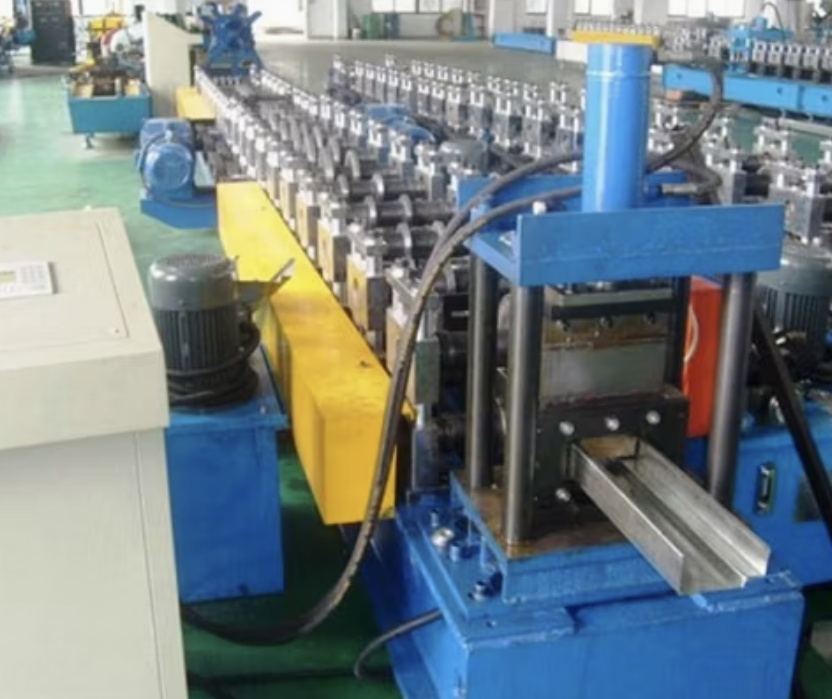To express an interest in this machine please submit the form below.

Not Sure What Machine You Need?
Select Your Profile, We'll Match It
Choose your desired profile drawing, and let Machine Matcher connect you with the best roll forming machine tailored to your needs.
Browse Profiles


A Steel Door Frame Roll Forming Machine is a specialized piece of industrial equipment used to fabricate high-quality metal door frames. These machines are designed to create door frames in different profiles, catering to various door types and dimensions. The machine operates by gradually bending, shaping, and forming flat metal sheets into the desired door frame shape through a series of rollers. This roll forming process offers precision, consistency, and efficiency, making it ideal for large-scale production.
Key Features:
1. What materials can be used in a Steel Door Frame Roll Forming Machine?
Most steel door frame roll forming machines are compatible with materials such as galvanized steel, stainless steel, and mild steel. Some models also support other metals based on the application requirements.
2. Can the machine be customized for different frame profiles?
Yes, many manufacturers offer customization options for the roll forming machine to produce various frame profiles, depending on the design needs. Adjustments can be made to accommodate different frame dimensions and shapes.
3. How does the hydraulic cutting system work in these machines?
The hydraulic cutting system uses hydraulic pressure to cut the metal precisely at specific lengths, which helps in achieving clean cuts. This system is generally automated to work in synchronization with the forming process.
4. What maintenance is required for a Steel Door Frame Roll Forming Machine?
Regular maintenance is essential to ensure optimal performance and longevity. This includes routine checks on the rollers, lubricating moving parts, and ensuring the hydraulic system is functioning properly. Additionally, keeping the machine clean and free of metal debris will help maintain precision.
5. Is there a specific power supply requirement?
Most machines are designed to operate on standard industrial power supplies (often 380V, 3-phase). However, requirements may vary depending on the country and specific machine model, so it’s advisable to confirm the power specifications before purchase.
6. What industries use Steel Door Frame Roll Forming Machines?
Industries that manufacture residential, commercial, and industrial doors often use these machines. They are particularly popular among companies specializing in building materials, metalworking, and construction sectors.
7. How long does it take to set up a Steel Door Frame Roll Forming Machine?
Setup time varies based on the complexity of the machine and the experience of the operators. Initial installation might take a few days to a week. However, once installed, switching between different frame sizes or making adjustments can usually be done within a few hours.
8. What is the average production capacity of these machines?
Production capacity depends on factors like machine speed, material thickness, and profile complexity. On average, a steel door frame roll forming machine can produce around 8-15 meters of frames per minute.
9. Are these machines compatible with automation in a production line?
Yes, most modern roll forming machines are equipped with PLC control systems, making them highly compatible with automated production lines. Features like remote control systems and stackers also enhance automation.
10. How much does a typical Steel Door Frame Roll Forming Machine cost?
The price varies widely based on specifications, optional extras, and brand reputation. A standard model might range from $30,000 to $100,000, with high-end models or machines with custom features costing even more.
Copyright 2026 © Machine Matcher.